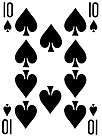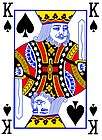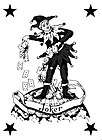ten
English
| 100 | ||
| ← 9 | 10 | 11 → |
|---|---|---|
| 1 | ||
| Cardinal: ten Ordinal: tenth Multiplier: tenfold | ||
Etymology

From Middle English ten, tene, from Old English tīen, from Proto-Germanic *tehun, from Proto-Indo-European *déḱm̥. Cognate with Scots ten, tene (“ten”), West Frisian tsien (“ten”), Saterland Frisian tjoon (“ten”), North Frisian tiin (“ten”), Dutch tien (“ten”), German zehn (“ten”), Norwegian ti (“ten”), Swedish tio (“ten”).
Non-Germanic cognates include Albanian dhjetë, Old Armenian տասն (tasn), Lithuanian dešimt, Old Church Slavonic десѧть (desętĭ), Old Breton dec, Old Irish deich, Ancient Greek δέκα (déka), Sanskrit दश (dásá), Old Persian *𐎭𐎰 (daθa), Latin decem, Tocharian A śäk.
See also teen.
Pronunciation
- (Received Pronunciation, General American) enPR: tĕn IPA(key): /tɛn/, [tʰɛn]
- IPA(key): /tɪn/ (pin–pen merger)
Audio (US-Inland North) (file) Audio (US) (file) Audio (file) - Rhymes: -ɛn, Rhymes: -ɪn (pin–pen merger)
Numeral
ten
- (cardinal) The number occurring after nine and before eleven, represented in Arabic numerals (base ten) as 10, in binary (base two) as 1010, in hexadecimal (base sixteen) as A, and in Roman numerals as X.
Related terms
Translations
|
|
Noun
ten (countable and uncountable, plural tens)
- (uncountable) The number following nine.
- (countable, card games) A card in a given suit with a value of ten.
- (countable) A denomination of currency with a value of ten units.
- (countable, US, slang) A perfect specimen, (particularly) a physically attractive person.
- (countable, US, slang) A high level of intensity
Synonyms
- Roman numerals: X
- (currency): tenner
Derived terms
Translations
|
|
See also
- (prefix): deca-, deka-
- (adjective): decadal, decenary
- (a set of 10 items): decimate, decimal; decaplet, decuplet (of babies, musical notes, or baryons)
- (containing 10 items): decenary
- (related to base-10 numeration): See decimal
- (period of 10 months): decimestrial
- (period of 10 years): See decade and decennium
- (related to a 10-year period): See decadal and decennial
- (10-year anniversary): See decennial
- (rule by 10 people): See decemvirate
- (commander of 10 soldiers): See decener
- (chief of 10 men in early English law): See tithingman
- (payment or collection of a 10% tax): See tithe
| Playing cards in English · playing cards (layout · text) | ||||||
|---|---|---|---|---|---|---|
| ace | deuce, two | three | four | five | six | seven |
 |
 |
 |
 |
 |
 |
 |
| eight | nine | ten | jack, knave | queen | king | joker |
Czech
Etymology
From Proto-Slavic *tъ, from Proto-Indo-European *só
Pronunciation
- IPA(key): [ˈtɛn]
Audio (file)
Declension
| singular | ||||
|---|---|---|---|---|
| masculine animate | masculine inanimate | feminine | neuter | |
| nominative | ten | ten | ta | to |
| genitive | toho | toho | té | toho |
| dative | tomu | tomu | té | tomu |
| accusative | toho | ten | tu | to |
| locative | tom | tom | té | tom |
| instrumental | tím | tím | tou | tím |
| plural | ||||
| masculine animate | masculine inanimate | feminine | neuter | |
| nominative | ti | ty | ty | ta |
| genitive | těch | těch | těch | těch |
| dative | těm | těm | těm | těm |
| accusative | ty | ty | ty | ta |
| locative | těch | těch | těch | těch |
| instrumental | těmi | těmi | těmi | těmi |
Dutch
Pronunciation
- IPA(key): /tɛn/
Audio (file)
Contraction
ten
- to the, at the (followed by a masculine or neuter word)
- ten goede of ten kwade ― for better or for worse
- ten dele ― partly
- ten tijde van ― during the time of
Usage notes
- ten is part of many fossilized idiomatic expressions. Being derived in part from te, it is followed by the (similarly fossilized) dative case.
- ten is commonly used in Dutch family names such as Corrie ten Boom, Bernhard ten Brink, Marti ten Kate, and Simeon ten Holt.
Derived terms
Related terms
Galician
Lithuanian
Lower Sorbian
Pronunciation
- IPA(key): [tɛn]
Declension
| Masculine singular | Feminine singular | Neuter singular | Dual | Plural | |
|---|---|---|---|---|---|
| Nominative | ten | ta | to | tej | te |
| Genitive | togo | teje | togo | teju | tych |
| Dative | tomu | tej | tomu | tyma | tym |
| Accusative | ten togo (animate) |
tu | to | tej teju (animate) |
te tych (optional animate form) |
| Instrumental | tym | teju | tym | tyma | tymi |
| Locative | tom | tej | tom | tyma | tych |
Middle English
Etymology 1
From Old English tīen, in turn from Proto-Germanic *tehun, from Proto-Indo-European *déḱm̥.
Old English
References
- A. L. Mayhew, M. A. Synopsis of Old English Phonology, 123
Pipil
Etymology
From Proto-Nahuan *teːn-, from Proto-Uto-Aztecan *tïni. Compare Classical Nahuatl tēntli (“lips”).
Noun
-tēn (plural -tejtēn)
- mouth
- Muchi tikishtukak tik muten kwak tishulutzin katka
- You used to put everything in your mouth when you were a little baby
- edge, brim
- Shiktema ishta ma ne at ajsi ne iten ne tzutzukul
- Fill it up until the water reaches the edge of the jug
- opening
- Inat ka ini tepet kishtia pukti tik iten
- They say this volcano expels smoke form its “opening” (its crater)
Derived terms
- -tēnpan (“edge”)
- -tēnshīpal (“lip”)
- -tēntzun (“moustache” or “beard”)
- tēnkal (“door”, “doorway”)
- tēntzin (“window”)
- tēntzakka (“lid” or “door”)
- -tēnnāmiki (“to kiss”)
- tēnpēlua (“to open one's mouth”)
Polish
Etymology
From Proto-Slavic *tъ, from Proto-Indo-European *só
Pronunciation
- IPA(key): /tɛn/
audio (file)
Scots
Etymology
From Middle English ten, from Old English tīen, in turn from Proto-Germanic *tehun, from Proto-Indo-European *déḱm̥.
Pronunciation
- IPA(key): /tɛn/
Slovak
Etymology
From Proto-Slavic *tъ, from Proto-Indo-European *só
Pronunciation
- IPA(key): /tɛn/
Related terms
Spanish
Pronunciation
- IPA(key): /ten/, [t̪ẽn]
- Rhymes: -en
Swedish
Tiang
Further reading
- Malcolm Ross, Proto Oceanic and the Austronesian Languages of Western Melanesia, Pacific Linguistics, series C-98 (1988)
Tok Pisin
Turkish
Declension
| Inflection | ||||||||||||||||||||||||||
|---|---|---|---|---|---|---|---|---|---|---|---|---|---|---|---|---|---|---|---|---|---|---|---|---|---|---|
| Nominative | ten | |||||||||||||||||||||||||
| Definite accusative | teni | |||||||||||||||||||||||||
| Singular | Plural | |||||||||||||||||||||||||
| Nominative | ten | tenler | ||||||||||||||||||||||||
| Definite accusative | teni | tenleri | ||||||||||||||||||||||||
| Dative | tene | tenlere | ||||||||||||||||||||||||
| Locative | tende | tenlerde | ||||||||||||||||||||||||
| Ablative | tenden | tenlerden | ||||||||||||||||||||||||
| Genitive | tenin | tenlerin | ||||||||||||||||||||||||
| ||||||||||||||||||||||||||
References
- “ten”, in Türkiye'de halk ağzından derleme sözlüğü [Compilation Dictionary of Popular Speech in Turkey] (in Turkish), Ankara: Türk Dil Kurumu, 1963–1982
Westrobothnian
Etymology
From Old Norse tin, from Proto-Germanic *tiną.
Pronunciation
- IPA(key): /tʰɪːn/, /tʰɪːɳ/
- Rhymes: -ɪ́ːn